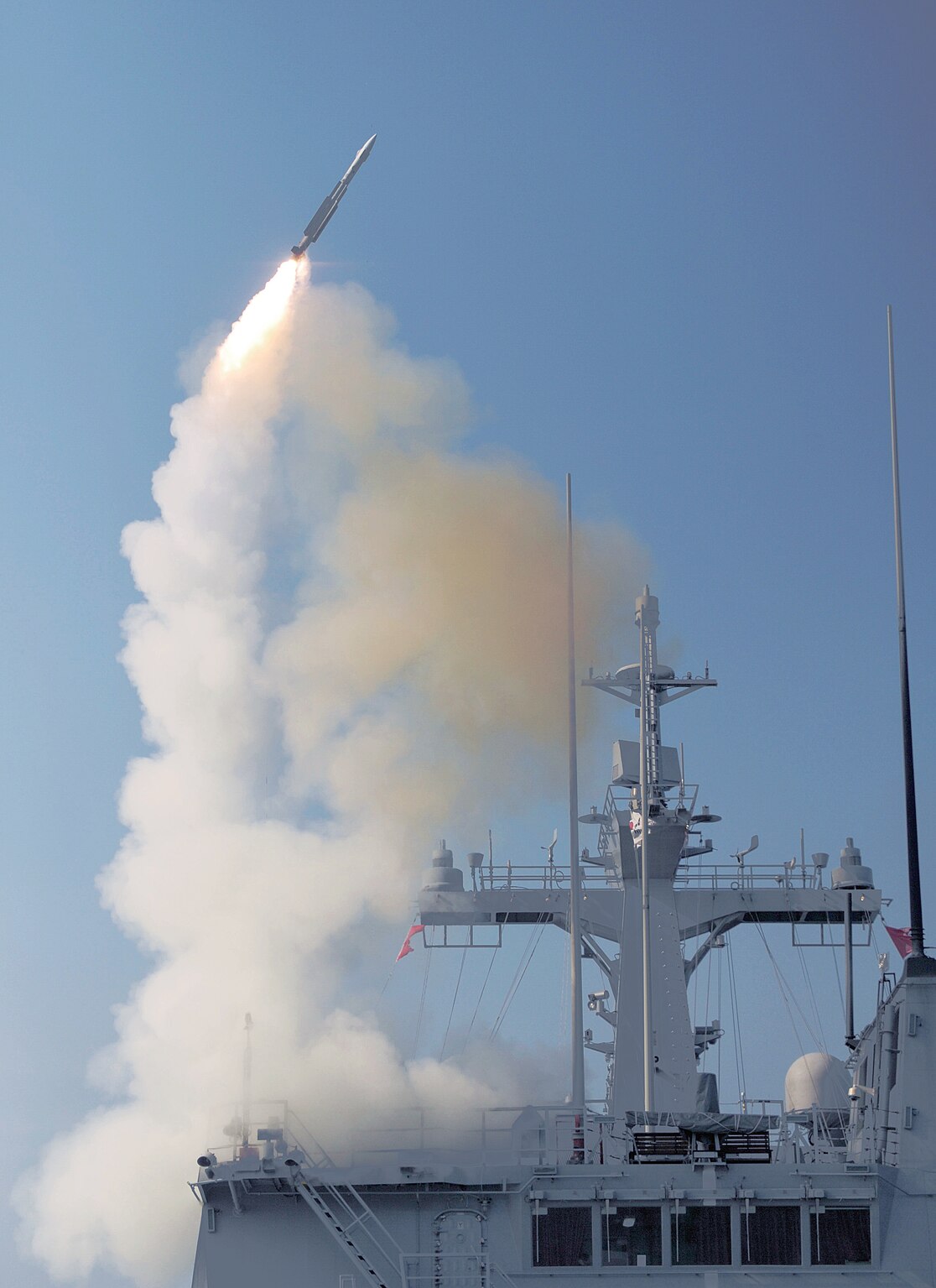(VIDEO) Malaysia’s LMS Batch 2 Warships to be Equipped with South Korea’s “K-SAAM”
(VIDEO) The Royal Malaysian Navy's three Littoral Mission Ships (LMS) Batch 2 acquired from Turkey, will reportedly be equipped with the K-SAAM (Korean Surface to Anti Air Missile), or "Haegung" in Korean.
(DEFENCE SECURITY ASIA) — The Royal Malaysian Navy’s three Littoral Mission Ships (LMS) Batch 2 acquired from Turkey, will reportedly be equipped with the K-SAAM (Korean Surface to Anti Air Missile), or “Haegung” in Korean.
Development of this short range missile began in 2011, and it went into mass production in 2019 after successfully passing tests against North Korea’s anti-ship missile “Kumsong,” as reported.
This short-range surface-to-air missile, developed by South Korea’s Agency for Defence Development (ADD) and LIG Nex1, is capable of reaching speeds of Mach 2 and targeting up to 20 kilometers away.
South Korea developed the K-SAAM to replace the Rolling Airframe Missile (RAM) system, previously developed by Raytheon (now known as RTX), to provide close-in defense for ships using it.
Each LMS Batch 2 ship, built by Savunma Teknolojileri Mühendislik (STM), will be equipped with 16 silos of the Vertical Launch System (VLS) for launching the K-SAAM missiles, each measuring 3.08 meters in length.

Currently, the K-SAAM missile is also employed by the South Korean Navy’s Daegu-class frigates and Dokdo-class amphibious assault ship ROKS Marado.
It features a dual-mode seeker that includes radar and infrared capabilities, allowing it to perform effectively in maritime environments as both an offensive and defensive weapon against anti-ship missiles and fighter aircraft.
Additionally, it includes inertial mid-course guidance capabilities.
The adoption of the K-SAAM by the LMS Batch 2 ships will significantly enhance the possibility of medium-range air defense system, the KM-SAM or “Cheongung” in Korean fulfilling the requirement by the Royal Malaysian Air Force (RMAF) for its Medium Range Air Defense (MERAD).
The KM-SAM, a medium-range air defense system also developed by ADD and LIG Nex1 with technical assistance from Russia’s Almaz-Antey, is notable for its blend of Western and Russian technological DNA.
In the Royal Malaysian Air Force’s development plan, CAP55, up to four batteries of the KM-SAM system are slated for acquisition from the 12th Malaysian Plan (2021-25) through to the 15th (2035-2040).
A standard KM-SAM system setup includes a Fire Control Centre (FCC), a Multifunction Radar (MFR), and several Transporter Erector Launchers (TEL) that can carry up to eight missiles each.
The system’s 3D Multifunction Passive Electronically Scanned Array (PESA) X-Band radar is capable of detecting targets up to 100 kilometers away and tracking up to 40 targets simultaneously.
The KM-SAM can engage air targets at altitudes up to 15 kilometers (49,000 feet) and ranges up to 40 kilometers.
Recently, the KM-SAM system has secured contracts from the United Arab Emirates (UAE), Saudi Arabia, and Iraq. — DSA
South Korea’s “KM-SAM” Medium-Range Air Defense System Seeks to Attract Malaysia’s Interest



Comments are closed.